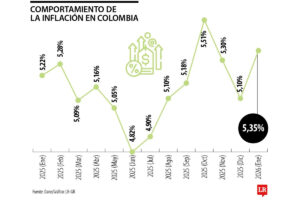As a family business leader, you need to recruit and retain individuals who align with your company’s values. But cementing those values in the first place requires thoughtfulness and patience.
As a family business leader, your best course of action to sustain and improve your culture is to recruit, hire and retain individuals who align with your company’s values. But first, of course, you need to ensure the company has concrete values in place.
It sounds straightforward, but what does this really mean?
Cultural anthropologists define the term “culture” as learned and shared patterns of behavior, distinctive characteristics and beliefs of a group. Culture is also shaped by goods, services and tools shared within that group.
But culture is not something that is created — or changed — quickly. For example, in my hometown of Detroit, there were extensive and destructive riots in the late 1960s and early 1970s. The negative ramifications of these riots were still being reckoned with decades later, and Detroit’s cultural renaissance remains a work in progress. If you believe the culture of your family business needs to change, recognize that it will require time and patience.
And this process starts with your company’s values.
Values are the cornerstone of any company culture. In family businesses, these corporate values typically stem from the family’s values. However, these family values often cannot be directly emulated in the business, especially if non-family executives are involved in formulating strategy. Instead, there should be a process of development within the business, in which the management team takes the guideline values from family ownership and adapts and refines them for the business.
It’s important to note that values cannot be established by simply picking words out of a hat or quickly brainstorming adjectives that could describe your company’s guiding principles. Ideally, your corporate values will be used by leadership to guide the company and will be used by all employees to make decisions, especially when owners and leaders are not present. So, be patient. Slowly process the building blocks, core characteristics and behavioral patterns of the company. Discuss. Debate. Build consensus. Again, this will take time.
The best approach is to hold a series of meetings where values can be discussed as a group. These meetings should be interspersed with periods in which ideas are allowed to marinate. It’s incumbent upon the management team and/or ownership (if ownership is active in day-to-day business) to ultimately settle on a set of four to eight core values, but it is not necessary for everyone in the company to agree on these. In fact, if you identify individuals who do not match these values, that’s a good indication they are not properly aligned with the company.
Once the values of the company are fully vetted and agreed upon, they must be written up, posted and published. You can start with dictionary definitions of the core values and then add a behavioral definition for each.
For instance, one of our company values is “empowerment,” which we define as fostering creative solutions. We also describe it as creative autonomy, initiative, letting go and experiential learning and recognize that with empowerment comes accountability.
The next step we took after defining empowerment was to determine what it looks like in action at our company. The organization gives everyone the tools to do what they need to do with clear expectations and guidelines. We slow down and ask clarifying questions. We celebrate creativity and accomplishments with awards. We strive to understand each other’s unique motivations — a.k.a. “buttons” — whether intrinsic or extrinsic. We clearly communicate needs, expectations and deliverables.
Once your company’s values are stated and definitions are established, ownership and leadership should educate their direct reports on them while also reinforcing those values in their own decision-making. This will support a healthy culture that will attract top talent. To ensure you are recruiting individuals who fit and nurture your culture, these values must also be communicated during the interview process. Ask candidates about their own values. Their answers will clearly illustrate who is likely to fit in with your culture and who is not.
For example, we like to ask finalist candidates: “Your parents each taught you a value, a value you hold near and dear in your heart. A value that is immovable and unchangeable. Each of your parents taught you a different value. What is the value your mother taught you? What is the value your father taught you?”
The power of establishing strong values and recruiting candidates who align with those values is immutable. We’ve seen companies succeed through times of uncertainty and volatility by sticking to their well-established values. You can do it, too. Good luck!
Información extraída de: https://familybusinessmagazine.com/growth/recruitment/the-value-of-values-in-culture-building-and-recruiting/?t=1717977600







